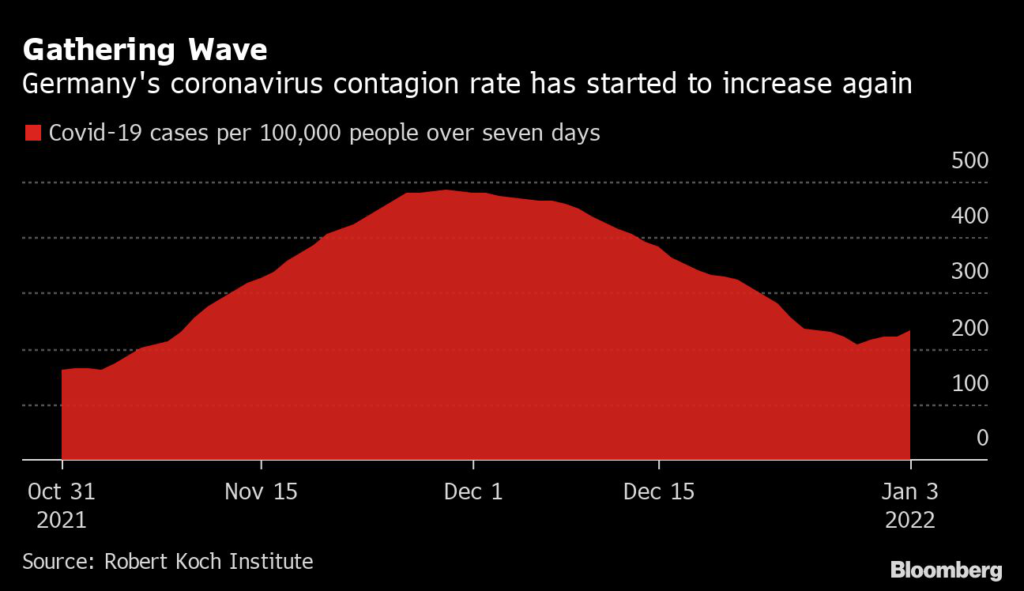(Bloomberg) — Germany is contemplating measures to protect critical services as the omicron variant threatens to become the dominant strain in the country by mid-January.
When Chancellor Olaf Scholz holds talks with state leaders on Friday to discuss the pandemic, the country could shorten quarantine times to prevent shortages at hospitals and care homes and among police, according to Health Minister Karl Lauterbach.
“There are very many questions that need to be settled, and preparations are in full swing,” Lauterbach said late Sunday in an interview with RTL/ntv television.
Omicron has sparked an unprecedented global spike in the coronavirus pandemic, with a record 10 million people diagnosed in the seven days through Sunday. In Germany, the total number of suspected and confirmed infections nearly doubled to 30,325 on Monday from 16,748 reported on Thursday.
The emergence of the highly-transmissible strain poses new challenges for authorities to contain the disease while keeping the public on board and maintaining key services.
Similar to Germany’s plans, France on Monday shortened the time that people who test positive for Covid-19 must isolate to as little as five days if they are fully vaccinated and test negative at that point. The move follows efforts to streamline isolation rules in the U.K. and the U.S.
Other countries are also facing staff shortages due to the rapid spread of omicron. In the U.K., the health service is in an “emergency,” partly because of very high levels of absences, according to Matthew Taylor, chief executive of the NHS Confederation. Daily cases in the U.K. have risen by an average of almost 160,000 over the past seven days.
Germany’s outbreak has started to tick higher, ending weeks of declines from record levels in late November. While the rise in infections has been far less dramatic than the surges in countries like France and Britain, authorities are bracing for a spike soon.
Lauterbach has warned that the current data may not provide an accurate picture due to reporting delays over the Christmas holidays.
Europe’s largest economy is currently in what some officials have termed a “lockdown for the unvaccinated,” with limits on public events and access to non-essential stores. Tighter curbs on private gatherings went into force last week, which contributed to a new round of protests against the government’s pandemic strategy.
The Harvard-educated epidemiologist had a window smashed at his parliamentary office in Cologne over the weekend. He said the opposition won’t have any impact on policy.
Demonstrations across Germany have typically involved a couple of hundred people at a time, and some have turned violent. Despite pockets of virulent resistance, Germany’s vaccine rate has gradually ticked higher, with 74% of the population having had at least one shot.
“The majority of society is standing together against the pandemic,” Lauterbach said, calling the protesters “a small, radical minority.”
(Updates with omicron infections in fourth paragraph)
More stories like this are available on bloomberg.com
©2022 Bloomberg L.P.



